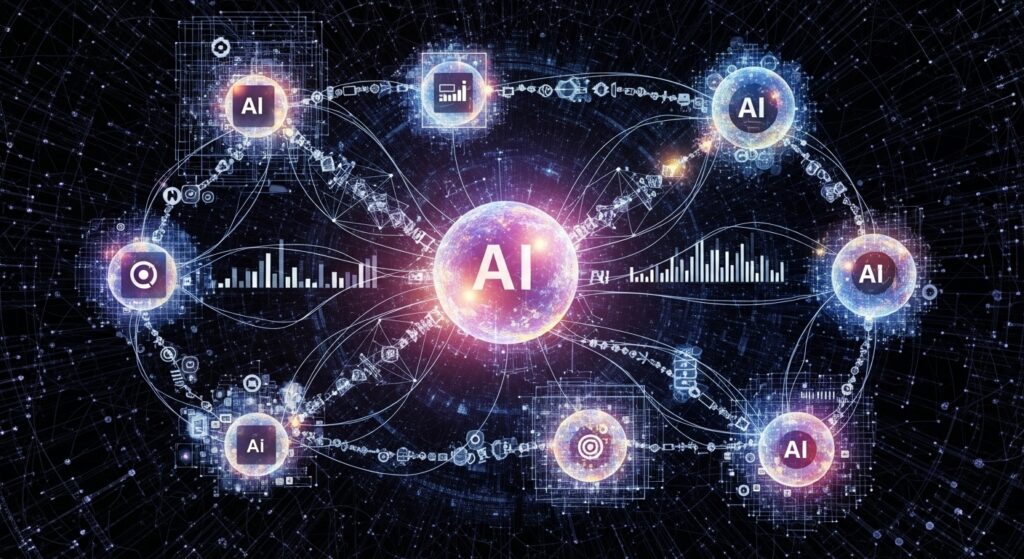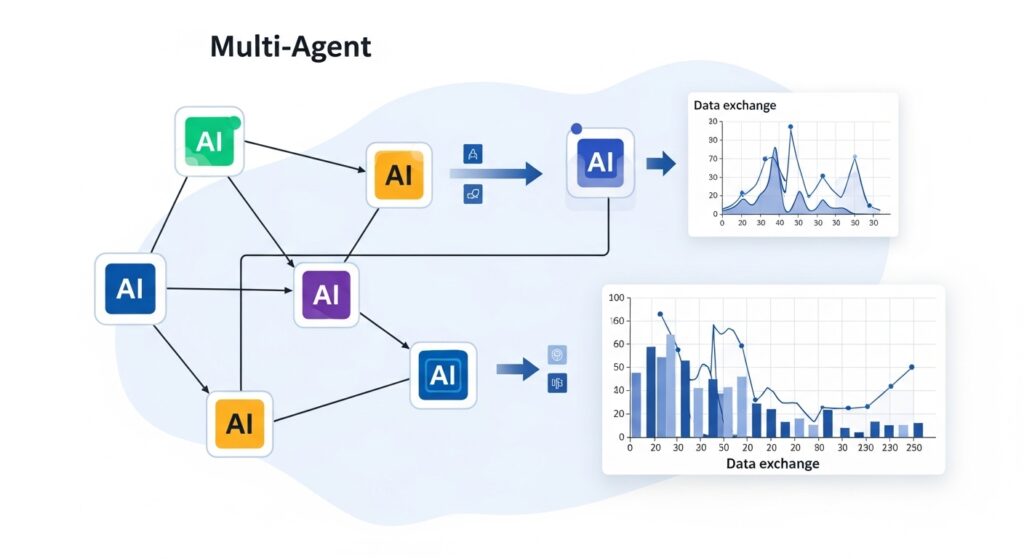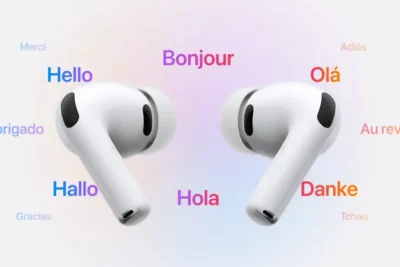
AI Multi-Agent Systems Revolution Transforms the Brazilian Market in 2025

National companies invest heavily in collaborative artificial intelligence to optimize operations and reduce costs by up to 40%

O ano de 2025 marca um ponto de virada na evolução da inteligência artificial no Brasil. Empresas de diversos setores estão adotando uma nova abordagem tecnológica que promete revolucionar a forma como as organizações operam: os sistemas multi-agentes de IA. Essa inovação, que permite que múltiplos agentes de Artificial intelligence collaborate to achieve complex goals, is becoming the main trend of the brazilian tech market.
What Multi-Agent Systems Are
The Multi-agent systems represent a significant development in relation to traditional AI models. Instead of relying on a single centralized artificial intelligence, this Technology uses several specialized agents working together, each with their own specific capabilities and functions. This collaborative approach allows companies to solve more complex problems and optimize workflows more efficiently.
In the Brazilian business context, this technology is being applied in areas such as customer service, data analysis, inventory management and strategic decision making. The capacity of different AI agents communicating and sharing information in real time has generated impressive results in terms of productivity and reduction of operational costs.
Democraticisation of the AI in the National Market
One of the main features of this new era of Artificial intelligence It's your growing democratization. Small and medium-sized Brazilian companies, which previously had no access to Technology advanced AI due to high costs and technical complexity, can now implement multi-agent solutions with more affordable investments.
This democratization is being driven by the development of more intuitive AI platforms and the reduction of implementation costs. Companies of national technology have developed specific solutions for the brazilian market, considering the cultural and regulatory particularities of the country.
Impact on Customer Service
The customer service sector has been one of the main beneficiaries of multi-agent AI systems. Brazilian companies are implementing networks of specialized agents that can handle different types of consultations simultaneously. One agent can be responsible for technical issues, another for sales and a third party for after-sales support, all working in a coordinated way to provide a more fluid consumer experience.
This approach has resulted in a significant improvement in customer satisfaction, with reduced response times and more efficient problem solving. Large Brazilian retailers report increases of up to 35% in customer satisfaction after the implementation of these systems.
Challenges and Opportunities
Despite the obvious benefits, the implementation of multi-agent AI systems also presents challenges. The need for integration with legacy systems, data security issues and the training of technical teams are some of the obstacles that Brazilian companies need to overcome.
On the other hand, opportunities are immeasurable. The ability to process large volumes of data, identify complex patterns and make automated decisions is allowing Brazilian companies to become more competitive in the global market. Sectors such as agribusiness, finance and e-commerce are at the forefront of this transformation.
Investments and Future Perspectives
The Brazilian multi-agent AI market is attracting significant investments. According to sector data, the commercial value generated by AI and machine learning should reach the US brand$ 4.4 trillion globally by the end of 2025, com o Brasil representando uma parcela crescente deste montante.
Empresas de tecnologia nacionais estão desenvolvendo soluções inovadoras que combinam inteligência artificial com outras tecnologias emergentes, como blockchain e computação quântica. Essa convergência tecnológica promete criar oportunidades ainda maiores para a transformação digital das organizações brasileiras.
Conclusion
A revolução dos sistemas multi-agentes de IA em 2025 representa muito mais do que uma simples evolução tecnológica. É uma transformação fundamental na forma como as empresas brasileiras operam, competem e se relacionam com seus clientes. Com a democratização dessa tecnologia, empresas de todos os tamanhos têm a oportunidade de se beneficiar da Artificial intelligence colaborativa, criando um cenário promissor para o futuro da inovação no Brasil.
A adoção crescente desses sistemas indica que 2025 será lembrado como o ano em que a inteligência artificial deixou de ser uma promessa futura para se tornar uma realidade presente no dia a dia das empresas brasileiras, impulsionando uma nova era de produtividade e eficiência operational.
Fonte: Análise baseada em dados de mercado e technological trends identificadas por especialistas do setor.


Related Articles